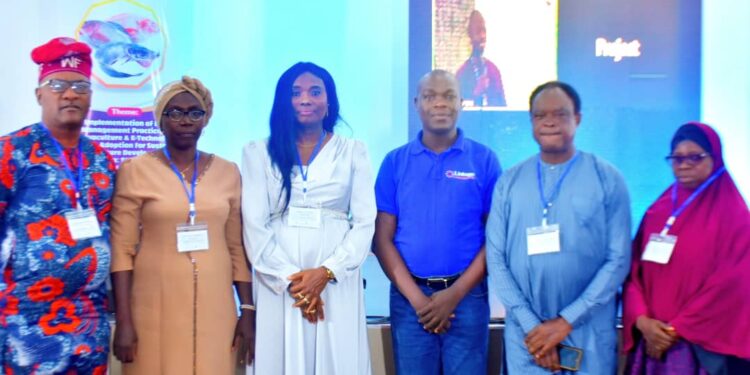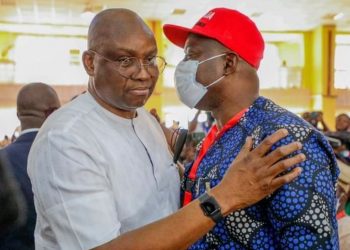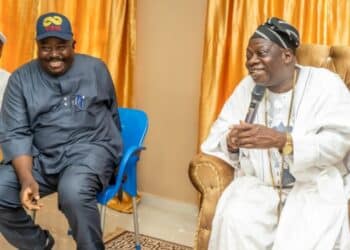Experts in the aquaculture industry in Nigeria have identified collaboration among stakeholders as a panacea to solving challenges in the industry.
They stated this on Tuesday in Ibadan at the stakeholders’ engagement programme on “Implementation of Best Management Practices in Aquaculture and E-Technology Platform Adoption for Sustainable Aquaculture Development in Nigeria.”
The project was funded by USAID and hosted by the University of Ibadan, the International Centre for Living Aquatic Resources Management (ICLARM), also known as WorldFish, Malaysia, and Mississippi State University, USA.
Prof. Olanike Adeyemo, the principal investigator of the FIL Aquaculture Biosecurity Project at the University of Ibadan, said the project was one of the USAID-funded projects under the Feed the Future Innovation Lab for Fish. Nigeria is the host country, and the project sites are in the Ogun and Delta states.
According to her, the workshop’s theme, “Implementation of Best Management Practices (BMP) in Aquaculture and e-Technology Platform Adoption for Sustainable Aquaculture Development in Nigeria: Stakeholder Engagement,” was to disseminate Best Management Practices in Aquaculture.
She stated that it was developed as an outcome of the project with the hope that the uptake of the BMP by farmers will lead to a significant reduction in the incidences of diseases in aquaculture.
“We shall also be presenting a justification for the collaborative development and implementation of a National Aquatic Animal Health and Governance Strategy (NAAHS).
“We strongly believe communicating our findings will in no little measure assist Competent Authorities with jumpstarting the processes involved in having a NAAHS enacted, implemented, and monitored for performance to ensure sustainability and resilience of the Nigerian aquaculture industry.
“The workshop also showcased the best examples of electronic technology platforms for aquaculture development in Nigeria; including demonstrating the improvements to the E-Aquahealth Solutions, which we developed to bridge the identified gap of inadequate veterinary and disease diagnostic support to the Nigerian Aquaculture Industry,” Adeyemo said.
In his address, Prof. Gabriel Ogundipe, the Head of the Department of Veterinary Public Health and Preventive Medicine at the University of Ibadan, stated, ” Nigeria’s aquaculture industry is growing, and we are depending on it for animal protein supply.
“So, many people are in the industry either as fishermen or as fish farmers, whereas a lot of people are also involved in marketing the products of the aquaculture industry.
“So we need to sustain the industry to be able to feed the multitudes of Nigerians.
“We also need to sustain the industry to maintain the people who are employed by the industry.
“And we also need to maintain this industry because of the consumers who depend on fish for their livelihood.”
In his presentation, Prof. Larry Hanson, Principal Investigator, Aquaculture Biosecurity Project, Mississippi State University, USA said from the background, the key findings from the survey were lack of records of losses and production, lack of biosecurity measures between production and stocking, and between farms and within farms.
Hanson stated that after outbreaks, farmers rarely consulted veterinarians, adding that management has been the best defence for disease prevention and reduces losses, growth, and the use of drugs and chemicals.
He stressed management, such as optimising the environment, fish defences, and minimising pathogens.
Others who spoke at the event, Dr Ganiyu Oladayo, Chief Executive Officer, Aquapet Ventures; Mr Bisi Oni of Fund Quest and Mr Lanre Oyedepo of Safeguard Insurance Brokers Ltd highlighted the challenges and way out of financing in the aquaculture industry as well as the need to upscale to meet the future demands of the industry.









